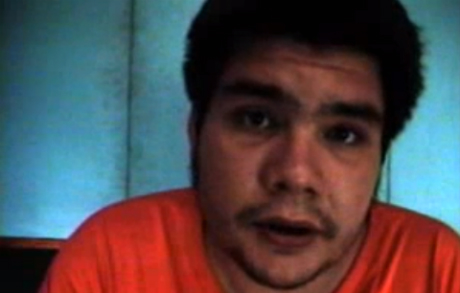Author Archives: M C
Basque Parliament urges the central executive to ask Philippines to pardon Paco Larrañaga
Posted in Uncategorized
Ateneo Screening Feb 1
Details of the Screening of Give Up Tomorrow
Date: Feb. 1, 2013
Time: 4:30 PM – 7 PM
Venues: SEC Lecture Hall 2 (SECB201A), Ching Tan Room (SOM111), CTC 102, CTC 105
For ticket reservations/meet-ups:
Contact Angelli Aquino: 09178551279
Zen Angeles: 09178111206
For Ateneans:
Ticket booth can be found at The New Rizal Library entrance facing the Social Sciences building.
Booth will be open from 10:30 AM – 4:30 PM until Feb. 1, 2013
More updates can be found at www.facebook.com/TurnRights2013
Posted in Uncategorized
The Top Filipino Films of 2012
Let Us Compare Mythologies: The Top Filipino Films of 2012
Posted by Richard Bolisay

5. GIVE UP TOMORROW, Michael Collins and Marty Syjuco
In hindsight, the Chiong murder case, from the moment it first came to public attention in 1997 to the release of Paco Larrañaga’s death sentence in 2004, was a dog and pony show. It exploded and scattered its shrapnel to every nook and cranny of the Philippine justice system, a grim and painful reminder of an organized snafu that required gods and monsters to accomplish, tightening the knots of an unforgivable criminal gaffe instead of helping loosen them. In Give Up Tomorrow, the situation being dissected is messy. Arguments pile on top of one another incessantly—each of them forming the trajectory towards the center, Paco’s innocence bearing the clearest but most disputed evidence—but the documentary makes a strong and convincing point by showing how clean-cut it is. Producer Marty Syjuco and director Michael Collins are driven by a hazy glimmer of hope, and rather than doing an autopsy they perform a CPR, veering away from mere journalism and carefully guiding the viewer into a cold, unsettling conclusion that pounds the truth that justice, regardless of partakers, shouldn’t be arbitrary. Their film presents a world where the hideous becomes bearable, and this kind of tolerance is more revolting than the crimes and misdemeanors that their seven-year search has managed to uncover.
Posted in News




